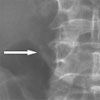
In the November issue of Drug Benefit Trends, a Viewpoint titled "How Can We Improve Drug Safety?" and an Editorial titled, "Is the Time Right for a BTC Drug Class?" seemed to send mixed signals about whether there should be a third category of medications stocked behind the counter (BTC) for which pharmacists would provide counseling.































































































































